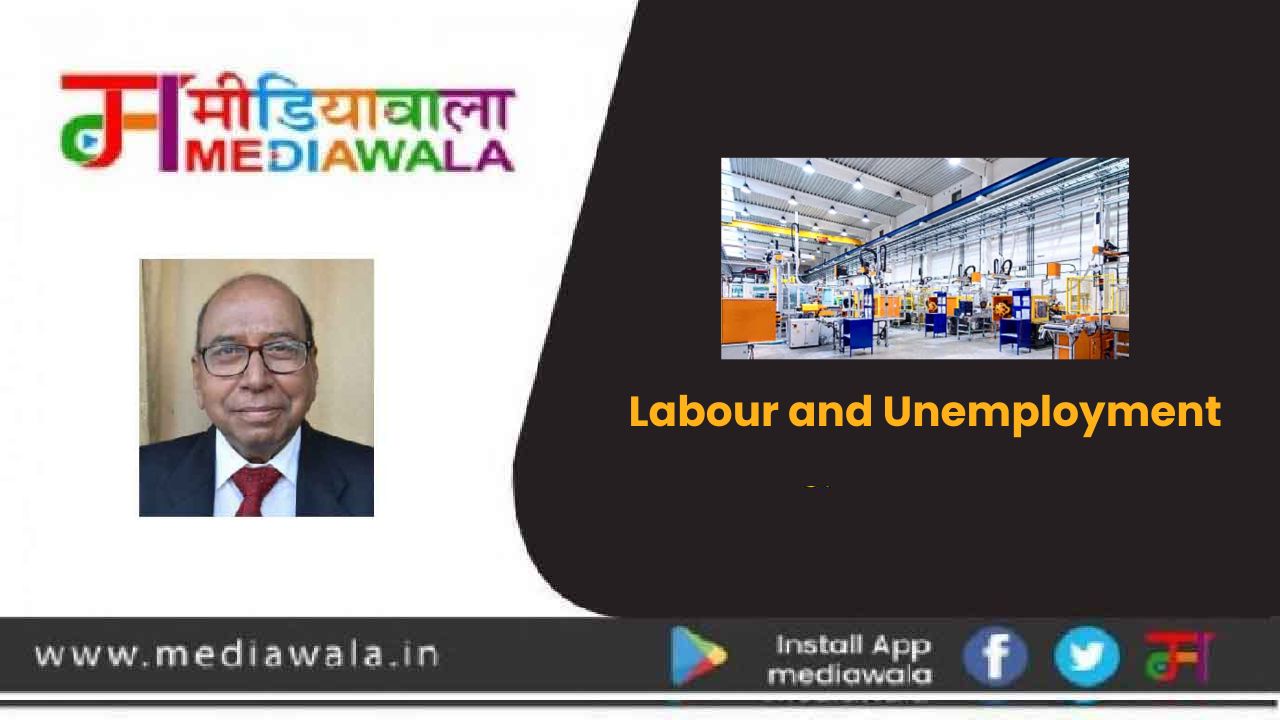

Labour and Unemployment
India is the fastest growing economy and it is mostly fuelled by service sector. In spite of India developing fast, jobs have become elusive. Millions of people are unemployed leading to social and political disruptions. To provide jobs the state governments and centre are trying to push manufacturing sector by organising Investment Meets . Concession after concessions are given, corporate tax has been reduced, SEZs created, Production Linked Incentives Scheme implemented and industrial towns made. In 2014, Modi declared Make In India with a target of taking manufacturing sector to 25% of the GDP. It is still hovering between 17% and 18%. While China’s manufacturing is 31.6 % of the world, India contributes a meagre 2.9%
India has a large population looking for jobs – decent jobs. Only 10% of our workforce is in the organised sector. The rest 90% is in agriculture and in informal SMEs. If India has to become a developed country, then sizeable population from agriculture sector has to be moved to manufacturing. This will also reduce the pressure on land holdings in villages, enhancing production. Informal sector should also become organised.
Arvind Panagariya, a great economist, has pointed out that Indian entrepreneurs invest only in high tech and capital intensive factories. Capital is withheld from the labour-intensive light manufacture like leather, textile, footwear, stationary, kitchen utensils, bicycle and sewing machines. These are left for very small units, which are non-competitive in international market due to poor quality and higher prices. If available capital goes into light manufacture, it can benefit from good quality and big production due to economy of scale. This will absorb millions of labour in organised sector with higher wages.
After independence, India had very little capital. This capital was used in heavy industry by public sector. The light manufacture was left for very small units which were not viable for export. Larger units in light manufacture were denied for private entrepreneurs by license- permit raj. Even after liberalisation, old legacy and archaic labour laws are detrimental for big investment in all types of labour intensive industries. Our labour laws, ironically meant for the welfare of labour, has kept away our unemployed from jobs. India is fast losing time to take its demographic advantage.
Our labour laws favour only organised labour led by unions. Entrepreneurs are under constant fear of illegal strikes and therefore they avoid labour intensive industries. It is not surprising that almost 80% of Indian factories employ just 100 labourers to avoid the nuisance of labour inspector. The poor jobless people suffer.
10% organised labourers enjoy the rock like protection of labour laws. All major political parties have inroads into organised sector through their affiliated labour unions. It is no wonder that Manmohan Singh never tried labour reforms. Modi passed in 2019 and 2020 mildly changed four Labour Codes, but even they are yet to be implemented due to protests by organised trade unions. All our political parties hypocritically swear to the dignity of labour, but throwing millions to jobless starvation.
Surprisingly, the capitalist US and the left communist China have the same labour laws which are referred to as ‘hire and fire’ policy. We are the only champion of socialism in the world! ‘Hire and Fire’ sounds harsh, but this has provided decent jobs to millions globally by balancing capital and labour. All private capital of India is going to high tech heavy industries and nearly all labour is left for agriculture and SMEs. We are heading for jobless development.
As far as the labour (and land) reforms are concerned, Governments of different political outfits will come and go, probably without daring to take the bull by the horns.







